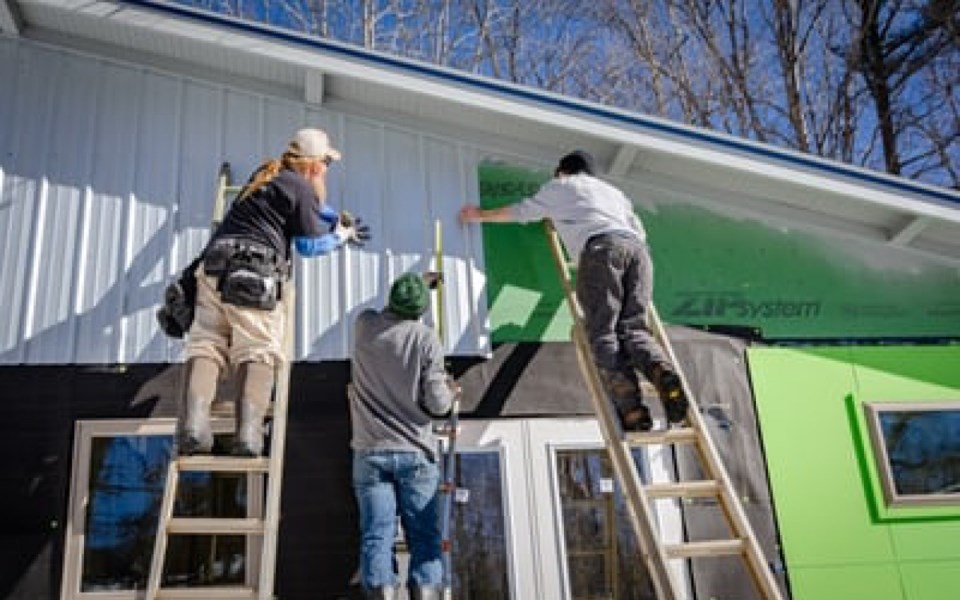As additional food for thought
regarding an article in Pique on Aug. 22, "Building Boon," about housing affordability and construction costs, I have the following thoughts and suggestions.My background is in construction and I have run a small construction company in Whistler for 25 years focusing on quality green and energy-efficient building and renovating.
I am glad to see we are building more (rental) housing. I am also glad to see it being built responsibly in terms of climate change, as a Passive House in the case of the new Whistler Housing Authority (WHA) building. Building to that level of energy efficiency does cost some more and it's good to see the federal government jumped in to help out with an apparent funding gap.
Which gets me to the point I want to make regarding government incentives to build more energy efficient buildings.
Currently in B.C. we have the Step Code in place in some municipalities, which prescribes the level of energy efficiency buildings have to be at. It is set up that the level increases every two years or so until in about 12 years, every new house will be a Passive or net-zero home, meaning that these will consume very little or no energy. This technology is available now and these homes are being built by forward-looking and responsible owners and builders, but it costs more and does not help housing affordability as there are no incentives.
These owners are paying more to do the right thing and, shockingly, there are zero incentives out there to get more people to do this.
As an example, I have a client who demolished his 1970s home to voluntarily make way for a Passive House. He could have just done a reno or built a "code" house to save some money. He is also keeping his footprint low by building on the same lot. It would sure be helpful to him to get some breaks in the cost.
I have other clients that would not spend the extra money it costs to build to such a level unless they received incentives to do so. The vast majority of clients would consider building to a higher level [if] strong incentives [were] available. Instead, all levels of government are again coming up with rules and laws to build more energy efficient over time, but the consumer is left with coughing up the money, making our unaffordable housing even more expensive.
So here's my suggestion if government at all levels wants to show some real sincerity on combating climate change.
In order to make housing/building more affordable and energy efficient for individuals and groups (such as WHA), give some real and substantial incentives such as waiving the GST on a new home that is certified passive or net zero or another comparable high-level, measurable efficiency measure. The provincial government can throw in a PST waiver, or reduction, and the municipality can waive the development cost charges.
Now we have some substantial dollar numbers that will entice people to start building to the above-mentioned levels, as well as make building housing more affordable for individuals and groups down the road.
So far, all levels of government are dealing with climate change by coming up with schemes that cost the consumer more money to do certain things that are plainly punitive in nature. The average consumer/citizen has to pay for it all, which makes the living/housing costs even more expensive in addition to our already expensive land.
In Germany, there is currently a very active discussion of how to seriously combat climate change and the suggestions range from taxing vehicles by their CO2 emissions (not fuel consumption), giving major incentives for economical electric vehicles and offering major tax-break incentives to upgrade/retrofit the energy efficiency in housing, as well as building new housing to the highest efficiency levels and also giving tax breaks on that to help with affordability.
These sound like fair, common-sense approaches to deal with climate change. There has to be a way to tax that is less punitive and functions more as a reward for carbon-conscious behaviour.
To finance this, maybe our government should invest the money into the above-mentioned incentives instead of buying pipelines and staying on the unfortunate path of carbon-heavy activities instead of encouraging innovation in the alternate energy sector. Give homeowners, builders and developers a real incentive to build better homes now.
I think substantial incentives will accelerate participation in building high-performance housing and other carbon-reducing activities.
Axel Schreyer // Whistler




